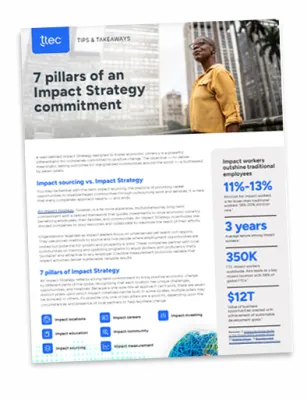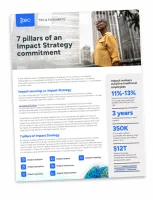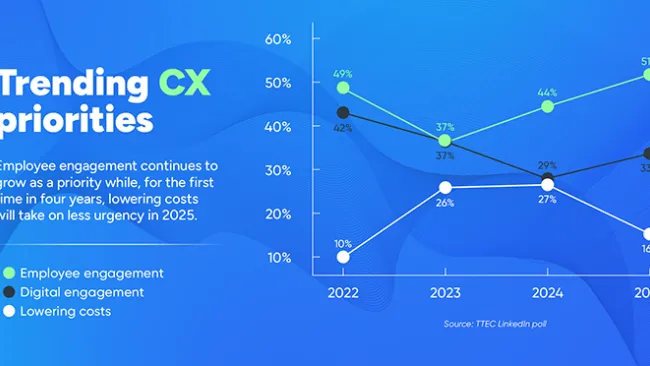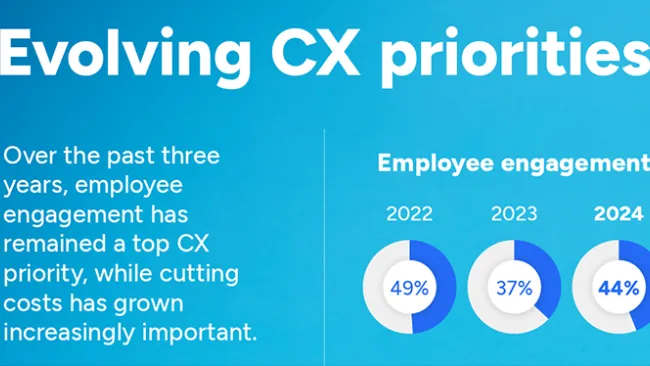The success of any company’s customer experience strategy depends largely on low- and middle-income hourly workers—the kinds of employees who staff the cash registers, serve the food, answer the phones, care for the elderly, check on a guest’s satisfaction, and type their responses to customers into a chat window. To a customer, these workers are your company.
And, as the saying goes, you can’t write a line of code or a business process rule that requires a worker to delight the customer. The worker has to want to delight the customer. In today’s always on, 24-7 world, the most successful companies will be composed of self-organizing collections of employees, both salaried and contract, full-time and part-time—including new, technology-enabled business models like Uber and TaskRabbit.
A self-organizing company is a bottom-up company in which employees act on their own initiative, with little or no top-down direction. As technology continues to connect us together ever more efficiently, organizations that want to remain competitive will need to be staffed by workers who feel personally aligned with the organization’s mission or purpose. Employee engagement, in other words, will be more important than ever.
Employee engagement can generally be defined as the degree to which a worker is psychologically committed to their job. Engaged workers are enthusiastic or even passionate about their job, and highly engaged employees often think of their work as a mission or calling. On the other hand, disengaged workers view their job as simply a financial transaction, selling their time to an employer.
Unfortunately, as Stanford Professor Jeffrey Pfeffer writes, virtually all surveys point to the fact that “the vast majority of employees are unhappy with their work, disengaged, and hoping for a different job.”
Interestingly, one cause of worker disengagement isn’t a mean boss, dysfunctional organization, or poor work environment. It’s simply the distraction and pain of financial stress in a low-income worker’s personal life. Six in 10 American workers today don’t even have enough in savings to handle a $500 emergency.
Living paycheck to paycheck, low- and middle-income workers can easily become distracted, inattentive, or even moody on account of an unanticipated expense or emergency—the car needs fixing, the air conditioner conked out, or the 10-year-old broke her arm. For anyone with little savings, these can be highly stressful events. And when workers are distracted by worrisome financial stress, they don’t pay as much attention to customers.
New fintech companies are springing up to help employers address a variety of employee “financial wellness” issues and one of my own clients, PayActiv, is aimed at the “between-paycheck” financing needs of hourly workers. Results from PayActiv’s first 18 months in business are promising. Its employer clients are experiencing noticeable reductions in worker attrition, and the employee Net Promoter Score (eNPS) of several thousand PayActiv users is a quite admirable +73.
It’s just one example of how important it is to give your employees the tools they need to succeed at work and at home. They have a big impact on the health of the business, too.
Don Peppers is the co-founder of CX Speakers LLC and is an original Founding Partner of Peppers & Rogers Group. He can can be reached at dpeppers@cxspeakers.com.















